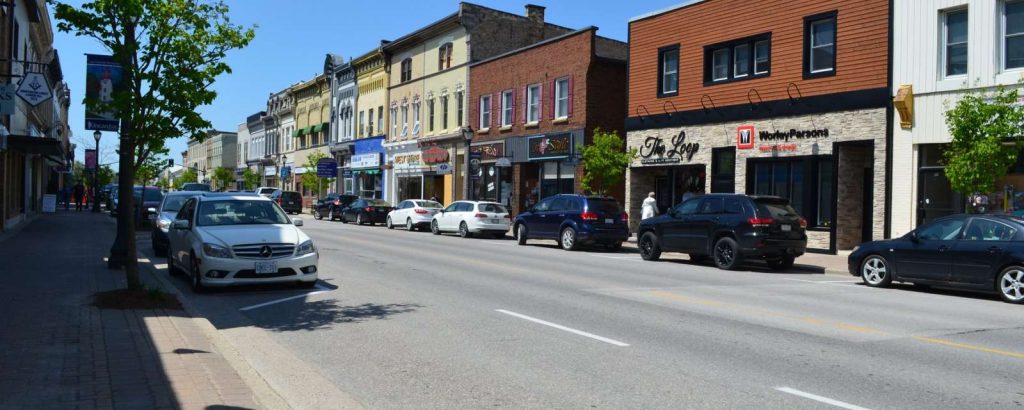
How Kincardine prepared main street for digital future
When Kincardine kicked off Digital Main Street it had a unique advantage, neighbouring Huron-Kinloss township and Goderich, a lakeside town further south, had already piloted the program in their communities.
Rick Clarke, downtown development manager at the Downtown Kincardine BIA had heard of the program, which combines grants and one-to-one support from the Province of Ontario and the Ontario BIA Association to help main street businesses strengthen their online capabilities, the previous spring. But going into summer when Kincardine turns into a Lake Huron resort town, it didn’t make sense to burden businesses with something new.
So as the summer settled he checked out how his neighbours had fared. “Their experience with the Digital Main Street was very, very positive,” he says. Clarke says the BIA had been pushing its members for a couple of years to amp up their digital presence, specifically with social media. “But we weren't really setting a good example,” admits Clarke adding that the BIA’s own presence was lacking.
Applying for the $10,000 Digital Service Squad grant gave the town an opportunity to directly contributed to its main street’s digital growth. Clarke reached out to Lauren Eby who had headed the township of Huron-Kinloss’s Digital Main Street program that past summer.
Eby, who was born and raised in Kincardine, was quick to sign on. “I've always loved our downtown and shopping local has always been very important to me so it was really exciting to work with all the businesses downtown,” says Eby. With only two and a half months to engage businesses before the December 31st cut-off, the digital specialist relied on her local roots to drum up interest.
A few entrepreneurial locals had already applied for the $2,500 Digital Transformation Grant and built out their own plans. Eby connected with them to gauge their progress and also sat down with 35 businesses to talk about their own digital presence and identify some of the free resources available to them.
“I showed them things like scheduling posts or just optimizing the listings that they have on Google My Business or Facebook,” she says. “I think that there is a scary aspect to some people about the digital world (but) it was cool seeing the light bulb go off that within a couple of hours of planning a week they can successfully run social media for their business.”
She says part of her mandate was making it clear for small businesses that “they don't need to be everywhere.” “They can really just make sure that they are on the channels that will work for their business,” adds Eby.
Despite the end date for the grants, Clarke says there’s a lot of value in the one-to-ones and workshopping components of Eby’s approach to the program. The BIA plans to collect some of the success stories and have those businesses share their experience with their fellow entrepreneurs.
“We have our younger entrepreneurs who are obviously more enthusiastically engaged,” says Clarke. “(And) then there are older entrepreneurs – like me, I'm a little intimidated by the technology – but they don't realize how simple the process can be by just picking up a few of the tips that Digital Main Street offers.”
Written by Andrew Seale
Digital Main Street was created by the Toronto Association of Business Improvement Areas (TABIA) with direct support from the City of Toronto. DMS is also supported by a group of strategic business partners, including Google, Mastercard, Shopify, Microsoft, Facebook, Intuit QuickBooks, Square, Yellow Pages and Lightspeed.
This case study was completed during a prior expansion of DMS in partnership with the Province of Ontario and Ministry of Agriculture, Food and Rural Affairs.
In June 2020, a $42.5-million investment from FedDev Ontario and an additional $7.45 million from the Government of Ontario brought together the Toronto Association of Business Improvement Areas, Communitech, Invest Ottawa and the Ontario Business Improvement Area Association to expand the Digital Main Street Platform in order to support more businesses going digital as a response to the impacts of COVID-19.
